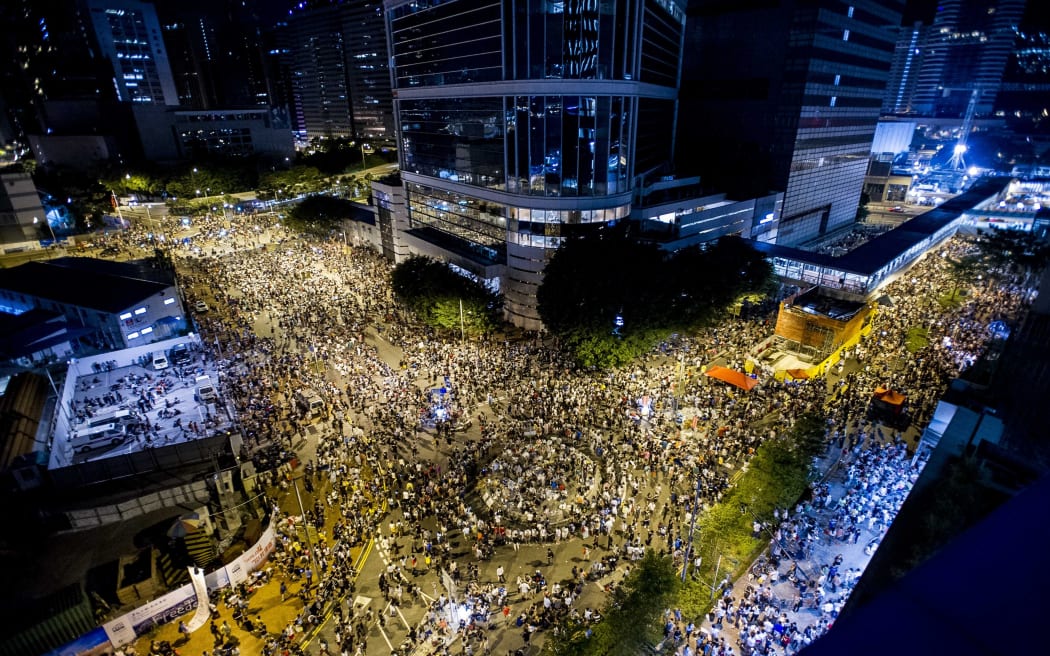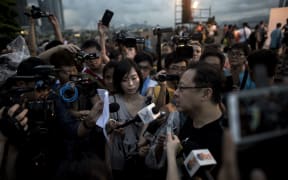A civil disobedience pro-democracy movement aiming to paralyse parts of Hong Kong with a massive sit-in has issued its demands.

Protesters gather outside the headquarters of the Legislative Counsel in Hong Kong. Photo: AFP
Occupy Central says it wants the Chinese government to scrap rules outlining the election of the next chief executive in 2017.
It also wants the resumption of public consultation on democratic reforms.
Thousands of protesters are camped outside government headquarters in central Hong Kong.
Occupy Central leader Benny Tai announced the launch of the campaign to the cheers of supporters on Saturday.
A statement said that Hong Kong Chief Executive CY Leung had "failed to deliver on political reform".
"We demand CY Leung deliver a new report on political reform to the central government, which must adequately reflect the demands of Hong Kong people for democracy," it said.
"If CY Leung does not respond, we will escalate our actions."
The movement had originally planned to paralyse the central business district on Wednesday, but organisers brought forward the start of the protest and changed the location in an apparent bid to harness momentum from student protests outside the government complex.
Student activists had stormed into a courtyard of the complex late on Friday and scuffled with police using pepper spray.
Police said they made scores of arrests including prominent student activist leader Joshua Wong.
The BBC reports that, even before Mr Tai's announcement, thousands had arrived spontaneously to support the demonstration by students.
Those outside the government buildings plan to stay until they are forcibly removed, she said.
However, some students expressed unease that their protest was apparently being taken over by Occupy Central.
"A lot of students left as soon as Occupy made the announcement they were starting their occupation," said university graduate Vito Leung, 24.
"I think they were really forcing it. This was always a separate student movement with similar goals but different directions. I don't think it should be brought together like this."
The protests at government headquarters followed a week-long strike by thousands of students.
Unrest began when the Chinese government announced that candidates for the 2017 chief executive election would first have to be approved by a nominating committee.
Activists have argued that this does not amount to true democracy.
Many of those who spent the night on the streets wore plastic raincoats and goggles in case police deployed more pepper spray.
Riot police stood nearby.
At least 34 people have been injured since the protests began, including four police officers and 11 government staff and guards, authorities said.


